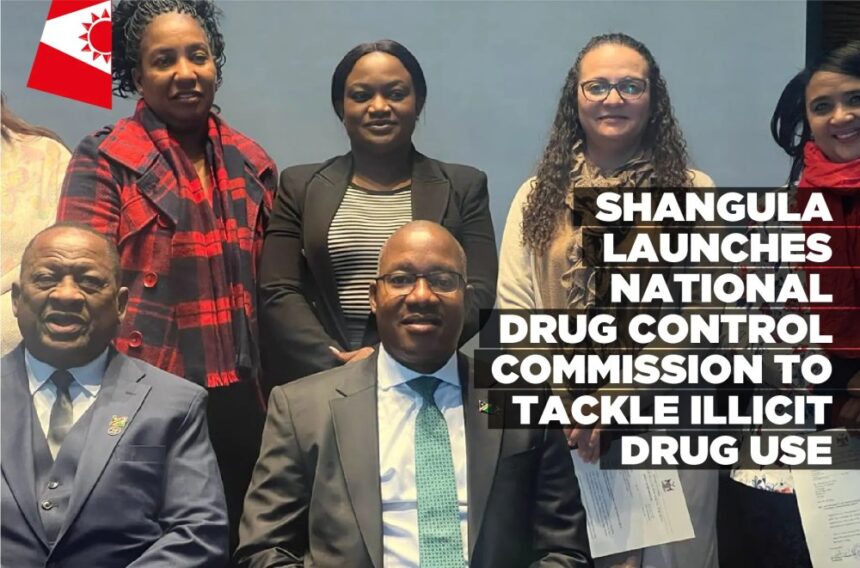Staff Reporter
THE Minister of Health and Social Services, Dr. Kalumbi Shangula, officially inaugurated the National Drug Control Commission, which he emphasized would play a significant role in reducing the harmful use of legal and illegal drugs in the country.
“Namibia faces an enormous challenge stemming from the availability of illicit drugs and other substances in the country. Available information and statistics indicate that Namibia is no longer simply a transit country for illicit drugs. There is an increasing number of users of illicit drugs of different ages,” Shangula said.
According to the minister, drug use has become so prevalent in the country that even children of a very young age have become users of these substances. He explained that the harm caused by the use of illicit drugs is devastating to the physical and mental health of drug users and could predispose them to a host of other burdensome illnesses such as HIV/AIDS, Hepatitis, and kidney disease.
However, Shangula stressed that while the effects on drug users’ health are detrimental, it is also important to consider the social effects of drug use. This, he explained, means not only focusing on the health and well-being of drug users but also on the impact it has on society and the country as a whole.
“We should take decisive action towards countering drug trafficking in order to safeguard all people in Namibia from the devastating and long-term effects of illicit drug use. Drug trafficking is usually the first link in the chain of other forms of organized crime, leading to the perpetuation of poverty and inequality among the drug users while the criminals of organised crime enjoy their ill-gotten wealth,” he said.
The minister explained that the National Drug Control Commission will play a leading role in galvanizing relevant stakeholders to work synergistically to ensure the effective implementation of the National Drug Control Master Plan and its nine objectives. These objectives, among others, include addressing health issues associated with drug use, particularly the use of injectable drugs; implementing alternative measures to incarceration for drug use; promoting proportionate age and gender sentencing; and facilitating access to controlled substances for medical and scientific purposes while preventing their diversion.




Leave a Reply